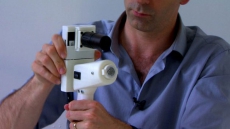Know why you get a hangover after a night of drinking while some of your friends do not? Blame it on your genes.
According to new research from University of Missouri-Columbia, genetic factors accounted for 45 percent of the difference in hangover frequency in women and 40 percent in men.
People who are less susceptible to having a hangover might have a greater risk for alcohol addiction, the study noted.
To reach this conclusion, the team looked for links between the participants' genetic makeup and the number of hangovers the individuals reported experiencing in the past year.
Nearly 4,000 middle-aged people from the Australian Twin Registry participated in a telephonic survey, reporting their experiences with hangovers and alcohol consumption.
The findings suggest that people who frequently consume alcohol should observe the way their bodies react to it.
"There is a strong correlation between identical twins in reports of hangover frequency as well as hangover resistance, meaning that the genetic similarities of some twins played a part in their hangover susceptibility," researchers noted.





